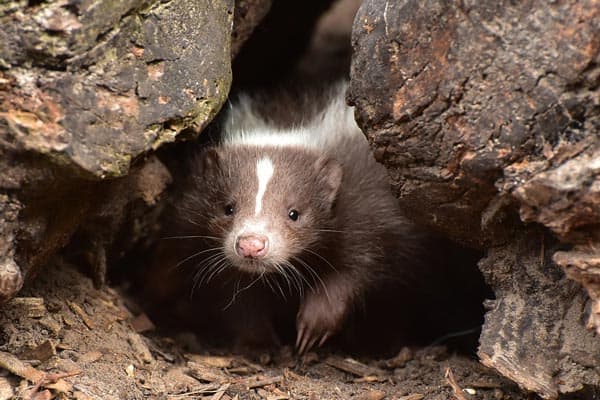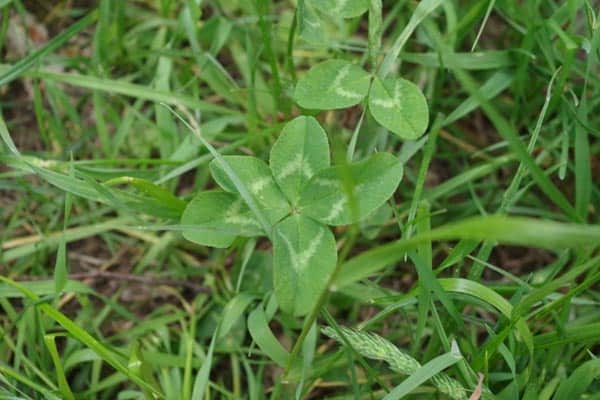Why You May Find Dead Squirrels in Your Yard and What to do About it
Although most people consider squirrels to be nuisance animals, it can be disconcerting to find a dead animal lying in your yard.
It’s even more unnerving if you find more than one dead squirrel in a short amount of time around the same area. What could be causing the squirrels to die in your yard?
Squirrels can keep dying in your yard because of poisoning, disease, predation, or electric shock.
However, unless you go out and request a necropsy sample from every squirrel you find deceased, you might never find the true cause.
However, there are some steps you should take if you find a dead squirrel or two in your yard to keep everyone safe.
The most important thing you can do is to never touch a dead squirrel, or any dead animal, with your bare hands.
Instead, you want to ensure that you wear protective gloves before putting the dead squirrel in a secure plastic bag.
You should also make a point to wash down the area where the dead squirrel was to prevent spreading diseases.
We’ll go over several reasons why squirrels could keep dying in your yard and what to do about it below so you’re ready if it ever happens to you.
Potential Reasons Why Squirrels Keep Dying in Your Yard
This is a difficult question to narrow down an answer to because there isn’t enough research to get a definitive answer, so trying to understand the morbidity rate of squirrels is mostly guesswork.
A thorough investigation would require doing a necropsy, and you have to do this very quickly after the squirrel dies.
A lot of the time, most people’s curiosity doesn’t go much further than curiosity or mild concern when they find a dead squirrel in their yard.
Most people aren’t concerned enough to do a very deep dive into why the squirrel died, and they don’t want to put the effort and time into solving this mystery.
But here are a few great reasons why you could keep finding dead squirrels in your yard, and we’ll outline the biggest ones below.
Diseases
Squirrels can contract several different diseases and Purdue University pointed out that although there are disease signs that are very similar, it’s not possible to tell exactly what is wrong without doing specific tests, exams, or lab work.
Viruses
- Animal Distemper – Animal Distemper Virus is one that is very infectious and usually deadly, and you can see it spread from smaller feral animals to dogs. This virus can cause neurologic, respiratory, and gastrointestinal illnesses, and there is no cure. Animals can contract it through fecal matter or body fluid contact from another animal.
- Rabies – Any mammal can contract rabies if they get exposed to the virus through bites or scratches from an infected animal. Although it’s not common, rabies can infect squirrels. However, there has yet to be a case of squirrel-to-human transmitted rabies in the United States.
- Squirrel Fibroma Virus – This is better known as Squirrelpox, and you can identify it by tumor-like protrusions on the squirrel’s body. Different squirrel species will show varying immunity levels. For example, red squirrels are very susceptible to it while grey squirrels aren’t.
Parasites or Bacteria
- Bartonella – This is a bacterial infection better known as cat scratch disease because an infected cat can easily pass it on to its owner. It’s also carried through lice, fleas, and ticks.
- Toxoplasmosis – This is a parasitic infection that squirrels and other rodents show by having more erratic neurological behaviors and lower anxiety, and it’ll eventually result in death. The infection passes to squirrels through parasites that live in a cat’s fecal matter.
- Tularemia – This is a bacterial disease better known as rabbit fever, and it spreads through ticks, fleas, and insect bites while being fatal to smaller animals. Since antibiotics were invented, this disease in humans is rarely deadly if they diagnose it.
Poison
It’s illegal to poison squirrels in several states, but it’s possible that your squirrel had exposure to non-toxic substances.
Chipmunks and squirrels are very common garden pests, and it’s not uncommon for them to get into contact with deadly pesticides that you put out for other animals and they were exploring the yard.
Rat poison is a blanket pesticide that is lethal to any small rodent that comes into contact with it, and someone in your neighborhood may have laid some out to deal with a rodent problem, and the squirrel found it.
Most of these rodenticides have a host of anticoagulants in them, and this ingredient stops the liver from being able to produce clots.
If you think that this is the issue, you should safely get rid of the dead squirrel as soon as possible.
Predation
If you have dogs or cats that can get outside on a regular basis, they could have been a factor in the squirrel’s death. Squirrels are one of the most common rodents in most neighborhoods, and your pet may have caught it.
Electrical Shocks
Squirrels are very skilled climbers, but this won’t necessarily keep them out of trouble. Even though squirrels are usually very careful when they go up and down power lines, they could make a mistake and die from an electric shock.
Head Trauma
The squirrel could have fallen when it was running through the trees and died of head trauma. Squirrels are usually very agile, and they could survive falls from a decent level without a problem. But, there is a chance that the squirrel fell and suffered from head trauma. This could result in the squirrel’s death
Fake
Some squirrels aren’t above faking being dead, and they could fall out of the tree and lay very still on the ground for a minute or two. The squirrel could then get up and run around like nothing is wrong. If you spot a squirrel, leave it alone for around 30 minutes and see if it moves. If not, it’s most likely dead.
What to do About Dead Squirrels in the Yard
There are a few things that you can do when you find a dead squirrel in your yard. They include but not limited to:
- Keep Children and Pets Clear – Make sure that your pets and kids stay away from the dead squirrel because it could pass on infection and germs.
- Have a Necropsy Done – If you want to get to the bottom of what is happening to the local squirrel population, the best thing you can do is take the squirrels to your local veterinary diagnostic lab. They can give you more exact answers on what is going on with the squirrels.
- Talk to the Neighbors – Talk to the people around your property and see if they have had a problem with squirrels dying in your yard. Discuss whether or not they’ve been using products that the squirrels could ingest and die from.
- Call and Animal Disposal Service – Animal control isn’t in charge of picking up dead animals on or around your property. Normally, the Bureau of Sanitation will handle these cases, but you can call them and your local DNR to see what your options are.
- Dispose of the Body Safely – The Boulder County homepage recommends not touching the body and using a shovel to pick up the squirrel before you drop it into a plastic or disposable bag. Put on gloves and make sure you double bag the body before you drop it in the trash and wash your hands.
Bottom Line
Although no one wants to see their yard turn into a squirrel graveyard, there are several reasons why you could find dead squirrels.
Poisoning, diseases, viruses, shocks, and pet predation are the most common factors, and potential head trauma is less likely. Without performing tests on the animal, it’s very difficult to tell. As long as you safely dispose of them, you should be okay.
Make sure that you keep your pets and kids away from the body before you dispose of it, and talk to the neighbors to see if they have problems too.
The only way to tell what’s wrong is to have a necropsy done on the body. If you’re not worried, just remove the squirrel, bag it in two trash bags, and toss it.
You could contact the local DNR if you’re not 100% sure what to do to ensure you’re getting rid of them correctly.






